Now What, Grad?
Other Books by Chris Palmer
Shooting in the Wild: An Insiders Account of Making Movies in the Animal Kingdom (Sierra Club Books, 2010)
Confessions of a Wildlife Filmmaker: The Challenges of Staying Honest in an Industry Where Ratings Are King (Bluefield Publishing, 2015)

All proceeds from the sale of this book will go to fund scholarships for students in the American University School of Communication who have overcome, or are overcoming, challenges and adversity in their lives, such as poverty, marginalization, racism, or personal tragedy.
Now What, Grad?
Your Path to Success After College
Chris Palmer
Rowman & Littlefield
Lanham Boulder New York London
Published by Rowman & Littlefield
A wholly owned subsidiary of The Rowman & Littlefield Publishing Group, Inc.
4501 Forbes Boulevard, Suite 200, Lanham, Maryland 20706
www.rowman.com
Unit A, Whitacre Mews, 26-34 Stannary Street, London SE11 4AB
Copyright 2016 by Chris Palmer
All rights reserved . No part of this book may be reproduced in any form or by any electronic or mechanical means, including information storage and retrieval systems, without written permission from the publisher, except by a reviewer who may quote passages in a review.
British Library Cataloguing in Publication Information Available
Library of Congress Cataloging-in-Publication Data is available on file.
ISBN 978-1-4758-2365-3 (hardcover)
ISBN 978-1-4758-2366-0 (paperback)
ISBN 978-1-4758-2367-7 (electronic)
 The paper used in this publication meets the minimum requirements of American National Standard for Information SciencesPermanence of Paper for Printed Library Materials, ANSI/NISO Z39.48-1992.
The paper used in this publication meets the minimum requirements of American National Standard for Information SciencesPermanence of Paper for Printed Library Materials, ANSI/NISO Z39.48-1992.
Printed in the United States of America
Dedicated to my wife, Gail

Preface
The greatest danger for most of us is not that our aim is too high and we miss it, but it is too low, and we reach it.
Michelangelo
As the student came into my office, I immediately could see that something was wrong. She was pale, and her shoulders sagged. Are you okay? I asked.
Not really, she said. Im graduating in two months and dont have a job. Ive been looking everywhere and networking like crazy, but nothing is panning out for me. I cant find a job!
One of my top students, Paige Jones was editor in chief of American Universitys newspaper, The Eagle , and a double major in journalism and international relations. She was a hard-working, accomplished student, but she was plagued by her biggest fear about the future: that she wouldnt be able to start a career when she graduated, that she would have failed. Overwhelmed by the difficulties facing her, she was exhausted after trying to navigate todays workplace. Its scary to think I might graduate without a job despite all the hard work I put into my classes, my work, and The Eagle , she told me. Sadly, this student is not alone in feeling somewhat despondent as graduation from college approaches.
Another of my excellent students, Kevin Borow, a graduating senior who had double majored in film and business administration, told me that failing was also his greatest concern: I fear being unable to find where I belong in this world and ending up in a position that isnt fulfilling.
Similarly, Jacob Motz, who double majored in film and political science and was yet another of my outstanding students, said that his fiercest anxieties focused on two possibilitiesthat he would not find work after graduation, or that he would, but his first job would fail to meet his ambitions. Jacob said, One of the most significant things Ive learned at AU is the importance of community. Each school, each fraternity, each club, each group of friends offers a safety net for lifes disappointments and a platform to celebrate lifes joys. You need a community to support you, to motivate you, and to love you in the good times and the bad. He worried that he wouldnt find that kind of community outside of college.
Berna Elibuyuk, another of my top graduate students, told me that soon after graduating, she began sending her rsum to all of the internship and part-time positions she could find that related to her major. She assumed she would be able at least to find a good internship position at a graphics company. Instead, she received e-mails and phone calls saying she was potential employee material but then lost out at the very end every time. The roads to success were all paved before me, but as soon as I walked down one, I would end up right back where I started, she told me.
The constant job searches drained her mental and physical energy. Not only did she tire from filling out long applications and answering broad and lengthy job questions, but her emotional state flipped inside out. I was in turmoil, she said. I kept asking myself, Am I not good enough? I was a grade-A student who produced quality work, so why wasnt I getting job offers? I felt stuck, with no ideas about what to do next.
Other students have told me:
- I am deeply afraid that all of the effort, time, and investment my family has so generously placed in me will be wasted, and I will not achieve anything significant.
- My biggest fear about the future is not being successful and failing to make it in the real world.
- Im afraid that the film industry wont understand who I am as a filmmaker.
- My biggest worry is not ever finding out how I will impact the world and not doing anything worthy of me.
- Im terrified of graduating from college as a humanities major. I have no idea where I am going to be this time next year.
At a recent graduation ceremony, I asked the assembled students to put up their hands if they felt apprehensive about the future and worried that it may prove difficult and challenging. Virtually all raised their hands.
Far too many students and recent graduates like Paige, Kevin, Jacob, and Bernaand perhaps like youare deeply worried about the future.
Those of us who teach can do a lot to help our students allay these fears by guiding them toward valuable technical skills. For example, in my field I can teach animation, cinematography, editing, interactive media, trans-media, participatory media, and immersive media. I can help build student competence on digital devices, social media, mobile apps, and augmented reality. I can work with maturing communications experts to create meaningful and purposeful media through visual and aural storytelling. Other fields offer their own unique sets of skills, techniques, and knowledge that professors can teach.
But in the real world, technical know-how alone does not ensure a successful career, not least because whatever technical skills a student possesses at graduation will soon be outdated. Young people need to learn how to succeed. They must sharpen their soft skills: how to collaborate; how to take initiative and be lifelong learners; how to be adaptable, resilient, and resourceful; how to be ambitious, confident, and assertive; and how to live with honor and integrity.
They must learn how to be professionals. Professionalism involves civility, courtesy, a solid work ethic, balance, networking, and strong communication skills. Professionals acknowledge and learn from mistakes, act as team players, consistently give their best effort, always treat others with respect, and keep their promises.
Our students must learn to be leaders. Leadership requires entrepreneurial and critical-thinking skills as well as discipline, focus, and competence in time management. A leader must be a skilled, persuasive communicator, ready to think big and boldly but also be ready to listen. Team-building skills, mentoring, and coaching also are vital.
Next page


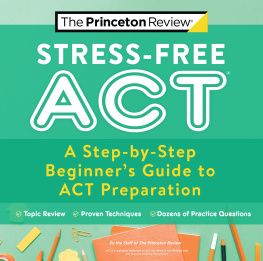
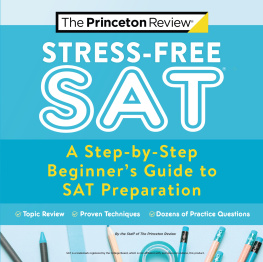
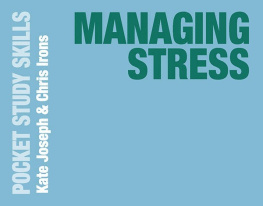
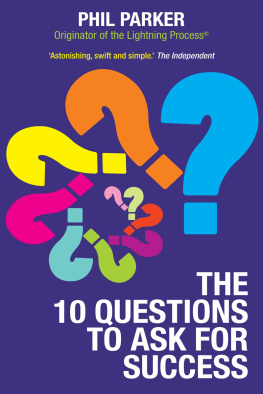

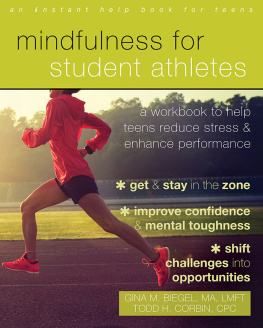
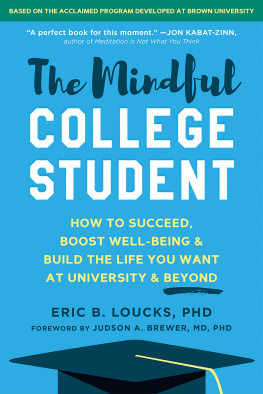
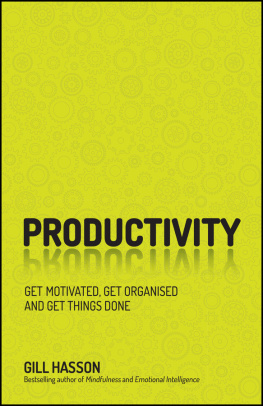
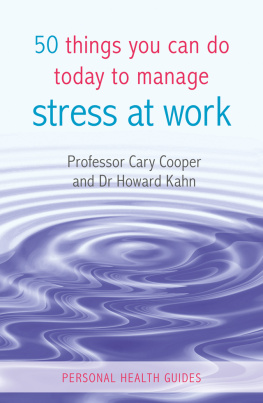


 The paper used in this publication meets the minimum requirements of American National Standard for Information SciencesPermanence of Paper for Printed Library Materials, ANSI/NISO Z39.48-1992.
The paper used in this publication meets the minimum requirements of American National Standard for Information SciencesPermanence of Paper for Printed Library Materials, ANSI/NISO Z39.48-1992.